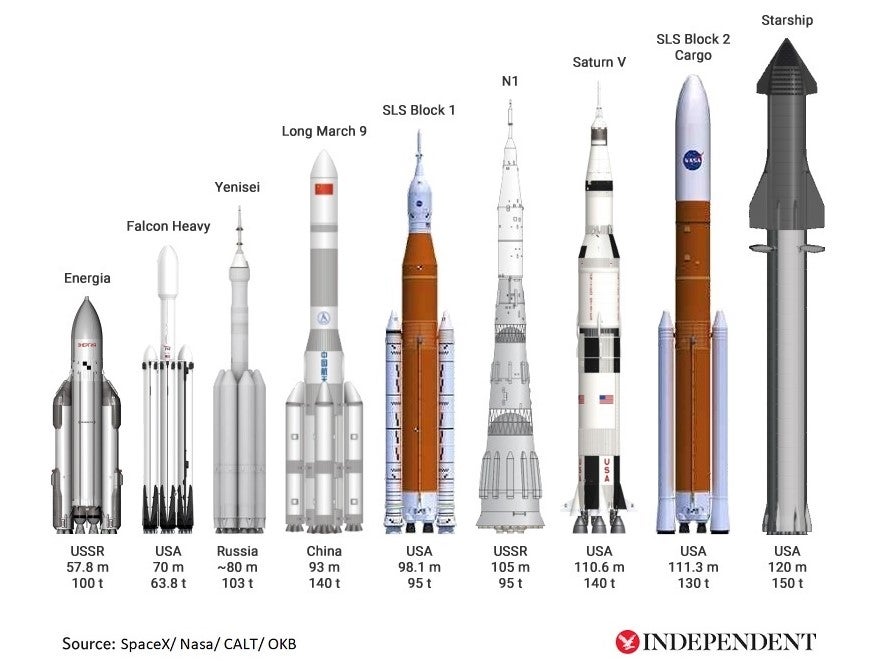SpaceX will attempt to ‘catch’ Starship rocket at next launch
Elon Musk gives new details of next Starship launch
SpaceX will attempt to “catch” the biggest rocket ever built in a world-first manoeuvre next month, Elon Musk has revealed.
The fifth major Starship flight test will be the most ambitious yet for the 120-metre-tall rocket system, with SpaceX planning to deliver it to orbit before recovering the Super Heavy booster in order to use it for future missions.
Unlike its Falcon 9 rocket, which lands autonomously on a launchpad, SpaceX plans to catch the Super Heavy rocket using robotic arms built into the launch tower.
The so-called Mechazilla tower will be in operation for the next Starship flight test, which Mr Musk says could take place within the next six weeks.
In response to an animation of the manoeuvre posted to X over the weekend, the SpaceX boss said he was “aiming to try this in late July”.

SpaceX began construction of the next-generation launch tower at its Starbase facility in Texas in 2021.
Measuring 146 metres (480 feet), it is the tallest launch tower in the world and could provide the basis of future planned Starship launch setups in Florida.
“It is designed to support launch, vehicle integration, and catch of the Super Heavy rocket booster,” SpaceX explains on its website.
“Catching the booster reduces mass from the launch vehicle, moves hardware complexity to the ground, and enables rapid reuse of the rocket.
“Following liftoff, and after the two stages separate in-flight, Super Heavy will return to the launch site, reignite its engines to slow the vehicle down, and the tower’s arms will catch the rocket booster before re-stacking it on the orbital launch mount for its next flight.”

The previous Starship flight test on 6 June saw SpaceX perform a splash-landing of the Super Heavy booster, successfully returning it to Earth in a major step towards achieving reusability.
SpaceX ultimately aims to build a massive fleet of Starship rockets capable of transporting crew and cargo throughout the Solar System. According to Mr Musk, the rocket will allow a human colony to be established on Mars within the next 10-20 years.
Subscribe to Independent Premium to bookmark this article
Want to bookmark your favourite articles and stories to read or reference later? Start your Independent Premium subscription today.


Join our commenting forum
Join thought-provoking conversations, follow other Independent readers and see their replies
Comments